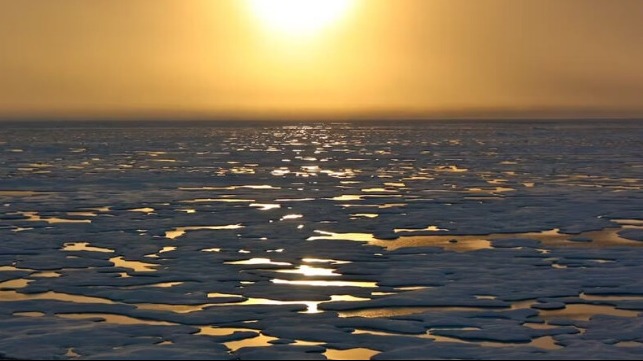Op-Ed: Arctic States Have Less Than Two Weeks to Act on Polar Fuels

The Arctic is warming four times faster than anywhere else on Earth, and this is a warning sign for elsewhere on the planet. The shipping sector has been gifted an opportunity to cut black carbon emissions from shipping in the region, which would have a near-immediate positive impact. But time is tight.
December 5th is the deadline for countries to submit a crucial proposal for polar fuels, ahead of next February’s meeting of the International Maritime Organization’s Pollution Prevention and Response subcommittee (PPR13). With the clock ticking, Arctic states must act without further delay to make cleaner fuels mandatory for shipping in a unique region already seriously impacted by climate change. Arctic states can demonstrate joint leadership on this issue, as they have vessels operating in polar waters, but they must be joined by other non-Arctic states.
The momentum and support for this important decision is building: the Nordic Council of Ministers has just made a recommendation for the Nordic governments to work towards the recognition of polar fuels by the IMO and the MARPOL Convention.
The International Maritime Organization (IMO) has spent more than a decade prevaricating over scientific analysis and discussions, yet black carbon emissions from Arctic shipping remain unregulated. February’s PPR meeting provides an opportunity to change this - with the deadline fast approaching, Arctic governments must put forward a concrete proposal to avoid squandering this chance. By acting now, Arctic countries can demonstrate a unique opportunity for joint leadership on cutting black carbon emissions. They can do this by championing - and making a robust proposal for a regulation on polar fuels.
Black carbon is a short-lived climate super-pollutant produced when fossil fuels are burned. It has a disproportionate impact because it both heats the atmosphere - and when released from ship exhausts near to the Arctic settles onto snow and ice, speeding up the melting and exposing darker land and sea beneath, which in turn absorbs more heat. This loss of the planet’s reflectivity - or albedo - is contributing to the fast pace of warming seen in the Arctic.
Black carbon emissions from ships burning oil-based fuels have more than doubled in the last decade, yet a simple and easy solution is to require shipping to use widely available distillate fuels with lower black carbon emissions and new zero-emission fuels when operating in and near to the Arctic. Defining which fuels should be used in the polar regions, and in particular in the Arctic, this coming February is crucial, and Arctic countries must be a driving force in ensuring that regulations on these ‘polar fuels’ are put in place.
But first, they must meet the looming December 5th deadline.
Dr Sian Prior is Lead Advisor to the Clean Arctic Alliance.
The opinions expressed herein are the author's and not necessarily those of The Maritime Executive.

